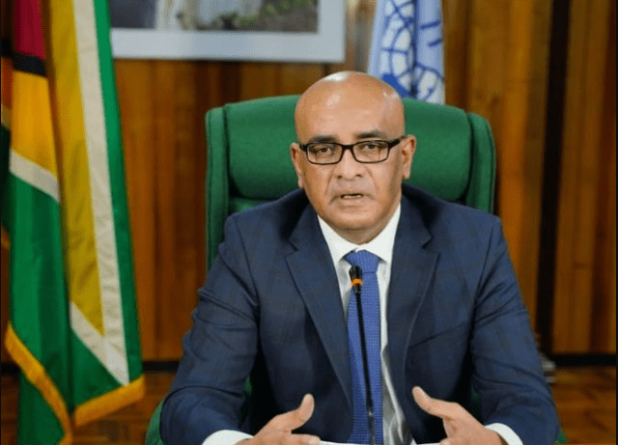If ExxonMobil bills Guyana for Kaieteur non-commercial well it would be criminal – Jagdeo
Following the announcement by ExxonMobil and its partners, Hess Corporation, Ratio Petroleum, and Cataleya Energy Limited, that the discovery at the Tanager-1 well in the Kaieteur Block is non-commercial, the companies informed the market that the well would be plugged and abandoned.
Since making this disclosure, however, industry stakeholders have expressed concerns about what protection Guyana has in place to ensure the millions of US dollars incurred to drill and now plug the well would not be billed against the profits being made in the Stabroek Block.
Kaieteur News subsequently contacted Vice President, Dr. Bharrat Jagdeo, on the matter as he is tasked with an oversight role for the oil industry.
The Vice President was quick to note that if ExxonMobil were to engage in such an act, “it would be criminal.”

During a brief interview with this newspaper yesterday, Dr. Jagdeo stressed that the agreements signed for the Stabroek and Kaieteur blocks are separate.
It therefore means that expenses have to be accounted for separately, expressed the official.
The former President added: “They can’t consolidate everything. We made it clear that when they come for a production sharing agreement for the Kaieteur Block, (it would not have the same loopholes as those which exist in the Stabroek agreement). It would be a very different PSA. So they can’t transfer that or else it would be criminal…”
The concerns about the consolidation of costs were expressed yesterday by Tom Sanzillo, Director of Financial Analysis at the Institute of Energy Economics and Financial Analysis (IEEFA).
Sanzillo is of the firm conviction that the accounting process for the non-commercial well needs to be addressed in a transparent manner while adding that there are serious questions which the citizenry needs to have answered.
In this regard, Sanzillo said that Guyanese must be told about the estimated cost of the Tanager drilling and any other costs to plug the well. The Finance Director also said that Guyana must know for certain, if 100% of the costs associated with the aborted drilling and plugging at Tanager-1 will be passed along as costs to be recovered from Guyana’s oil and gas revenue or if ExxonMobil will bear the cost of the drilling thus far.
Further to this, Sanzillo said Guyana needs to know what are the financial controls that exist to prevent the operator from passing along the costs under the Kaieteur agreement as costs to the Liza exploration and production projects; if ExxonMobil as the operator will be providing a public statement that sets forth basic facts about this unsuccessful drilling project, including costs; and if it offers appropriate assurances concerning future activity.
Additionally, Sanzillo posited that ExxonMobil has a superior reputation for its oil drilling expertise, as such, Guyanese deserve to know if there will be a final analysis that is publicly available that explains why the drilling project was undertaken, what was anticipated, what was achieved, why the decision was made that the reserves are not commercially viable, what lessons were learned with regard to the quality of oil reserves in the Kaieteur Block generally, and what steps will be taken to ensure positive future outcomes.
In conclusion, the Director of Financial Analysis at the Institute said that the agreement for the Kaieteur block, like the one for Stabroek, involves carefully crafted provisions which are designed to provide maximum cash reimbursements to the contractor before Guyana receives its fair share of cash from the oil.
Taking this into consideration, Sanzillo said: “How the costs are determined and how they are used to calculate cash payments to Guyana are of vital importance. What happens now, at the beginning of the contract, will set the pattern for Guyana’s claim to its fair share for years to come.”






















